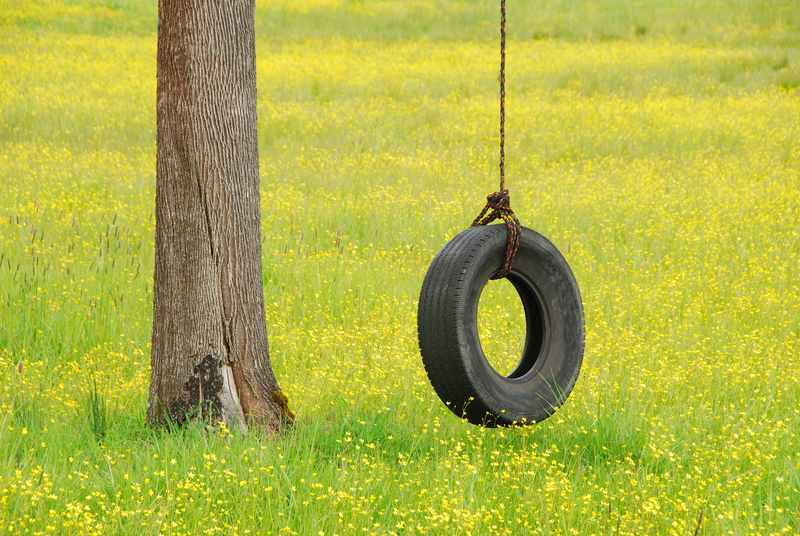Smart Waste Prevention Techniques to Try at Home
Waste prevention at home is not just a trend--it's an essential shift towards sustainability, environmental responsibility, and cost savings. Every day, households around the world generate tonnes of unnecessary waste, much of which can be curtailed through simple yet effective strategies. If you're looking to make a positive impact on both your wallet and the world, embracing smart waste prevention techniques at home is a great starting point. This comprehensive guide will explore practical, easy-to-implement waste prevention tips, making your home greener and more efficient.
Why Waste Prevention Matters
The environmental consequences of unchecked household waste are significant. Landfills are filling up, natural resources are depleting, and environmental pollution is escalating. By focusing on waste reduction at the source, you're helping to:
- Reduce landfill usage
- Conserve precious resources
- Lower greenhouse gas emissions
- Save money on disposal costs
- Create a healthier living environment
Smart waste prevention isn't about deprivation--it's about making more conscious choices to help both your family and the planet flourish.

Top Smart Waste Prevention Techniques for Your Home
Below, you'll discover a comprehensive selection of innovative household waste reduction strategies you can adopt today.
1. Adopt a Mindful Shopping Routine
Your journey to waste prevention starts with mindful shopping. By making smarter choices at the store, you can curb the quantity of waste generated at home.
- Plan meals ahead: Write a meal plan and stick to your shopping list to avoid impulse buys and food waste.
- Avoid single-use packaging: Where possible, choose products with minimal or recyclable packaging, or buy in bulk.
- Opt for reusable bags and containers: Always take your own bags, jars, or containers for shopping.
- Support local farmers' markets: These often use less packaging and feature fresher produce, which lasts longer.
2. Maximize the Use of What You Already Have
Waste often results from underutilizing the goods we own. Practice inventory management at home by:
- Using the FIFO method: (First In, First Out) Arrange your pantry and fridge so older items are at the front and get used before newer products.
- Regularly checking supplies: Before buying more supplies, check what's already at home to avoid duplicates.
- Repurposing leftovers: Get creative in the kitchen and turn leftovers into tasty new meals or snacks.
3. Compost Organic Waste
Composting is a classic, effective waste minimization strategy for organic material like food scraps, coffee grounds, and garden clippings.
- Create a compost bin: Indoor or outdoor bins are available for easy at-home composting.
- Know what can be composted: Fruit and vegetable scraps, eggshells, coffee grounds, and some paper products enrich your compost pile.
- Use finished compost: Fertilize your garden, indoor plants, or gift it to friends and neighbors.
Reducing organic waste through composting not only diverts matter from landfills but also creates nutrient-rich soil for your garden.
4. Embrace Reusables and Refillables
One of the smartest ways to prevent household waste is to invest in reusable goods instead of throwaways.
- Water bottles and coffee cups: Carry your own instead of buying disposable versions.
- Cleaning cloths: Swap paper towels for microfiber or cotton cloths that can be washed and reused.
- Storage containers: Glass, stainless steel, or high-quality plastic containers are long-lasting options for leftovers and lunches.
- Refill stations: Many stores offer bulk bins or refill stations for cleaning and personal care products--bring your own containers.
5. Repair and Repurpose Before You Replace
You don't have to discard broken items right away. Get into the habit of repairing or repurposing before considering disposal. This is a key technique in preventing domestic waste:
- Learn basic repair skills: Sewing, simple electronics fixes, and furniture repairs can extend the life of your possessions.
- Repurpose creatively: Turn old jars into storage, t-shirts into rags, or worn chairs into garden art.
- Organize a swap: Host a swap party for books, toys, clothes, or home goods in your neighborhood.
6. Smart Food Waste Management
Food makes up a significant portion of household waste. Smart food waste prevention methods include:
- Understand expiration dates: "Best before" often indicates peak quality, not safety. Learn to trust your senses.
- Freeze surplus food: Freeze bread, sauces, and fruit before they spoil.
- Batch cook: Cooking and freezing meals in advance makes food last longer and minimizes waste.
- Portion control: Cook or serve only what you need, especially with perishable items.
Implementing these food-saving techniques can drastically reduce waste and cut down on grocery bills.
7. Recycle Right
Recycling remains an important waste management strategy, but it's critical to recycle effectively to prevent contamination.
- Learn the rules in your area: Every locality has its recycling guidelines. Make sure your household complies.
- Clean recyclables: Rinse containers to prevent contamination.
- Avoid wish-cycling: Don't toss questionable items into the recycling bin "just in case."
- Reuse before recycle: Prioritize reusing items over recycling for maximum waste prevention.
8. Buy Durable, Quality Products
It's tempting to purchase inexpensive items, but investing in quality minimizes waste in the long run.
- Choose long-lasting goods: Buy products that are well-made, repairable, and have reliable warranties.
- Avoid buying trends: Stick to classic designs and styles to reduce the temptation to replace frequently.
- Consider secondhand: Thrift stores and online marketplaces offer durable goods at a fraction of the cost--often with a lower carbon footprint.
Innovative Waste Prevention Gadgets for Home
Modern technology brings smart waste reduction tools to your fingertips. Some gadgets worth considering include:
- Composters: Electric countertop composters reduce organic waste and create compost faster.
- Freshness sensors: These devices monitor freshness in your fridge to alert you before produce spoils.
- Reusable smart storage bags: Made from silicone or beeswax, these bags are durable, eco-friendly, and replace disposable plastic wraps and bags.
- Water purifiers: Invest in a home water filter to avoid the need for bottled water.
Smart Waste Prevention Techniques Room-by-Room
Waste reduction should take place throughout your home. Here's a closer look at how you can minimize household waste room by room:
Kitchen
- Compost food scraps and recycle packaging.
- Use beeswax wraps instead of cling film.
- Opt for loose produce instead of pre-packaged items.
Bathroom
- Switch to bar soaps and shampoo bars.
- Use refillable dispensers for hand soap and lotion.
- Choose reusable razors and cotton rounds.
Laundry Room
- Use concentrated detergents that come in recyclable packaging.
- Wash full loads to conserve water and energy.
- Air-dry clothes when possible to reduce wear and tear (and thus extend lifespan).
Living Room and Bedrooms
- Embrace digital media over physical books and DVDs wherever practical.
- Donate or sell unused items instead of discarding them.
- Switch to LED bulbs for longer-lasting lighting.
Garden and Outdoor Spaces
- Start a compost pile or use a composter for garden waste.
- Collect rainwater for garden use in barrels.
- Choose perennial plants to avoid replanting (and discarding) annuals each season.
Building Lasting Habits: Tips for Long-Term Waste Prevention
Developing long-term waste reduction strategies requires positive habits and consistent effort:
- Educate your family: Get everyone on board by discussing the benefits of smart waste prevention at home.
- Set achievable goals: For example, challenge yourself to reduce landfill-bound waste by 50% this month.
- Track your progress: Keep a waste log to identify problem areas and monitor improvements.
- Reward successes: Celebrate milestones to keep motivation high.
Common Myths About Waste Prevention at Home
There are several misconceptions about domestic waste prevention. Let's debunk a few of them:
- "Waste prevention is expensive."
Switching to reusables or repairing can actually save money in the long run. - "It's too time-consuming."
Many techniques, like meal planning or using a compost bin, save time overall by lowering the frequency of chores like trash disposal. - "Only big changes matter."
Even small shifts, like using a reusable water bottle, collectively make a big impact.

Frequently Asked Questions About Smart Waste Prevention at Home
-
What are the easiest ways to start waste prevention at home?
Begin with meal planning, using reusable shopping bags, setting up a compost bin, and choosing to repair or repurpose instead of tossing items out. -
How can I encourage my children to participate in waste reduction?
Get kids involved in sorting recyclables, composting, and creative upcycling projects. Teaching through action is powerful! -
Are there community resources to support waste prevention?
Many communities host recycling drives, repair cafes, and composting workshops. Check with your local municipality or environmental groups.
Conclusion: Make Smart Waste Prevention at Home Your New Normal
Smart waste prevention at home is not only possible, but also rewarding. By making mindful purchases, reusing wherever possible, composting organic material, and adopting other techniques outlined here, you can dramatically reduce your household's impact on the environment. Start with a few strategies that fit your lifestyle, and gradually incorporate more as you go. Every action, big or small, plays a part in building a more sustainable future for all. Your journey to a zero-waste home begins now--make it fun, educational, and impactful!